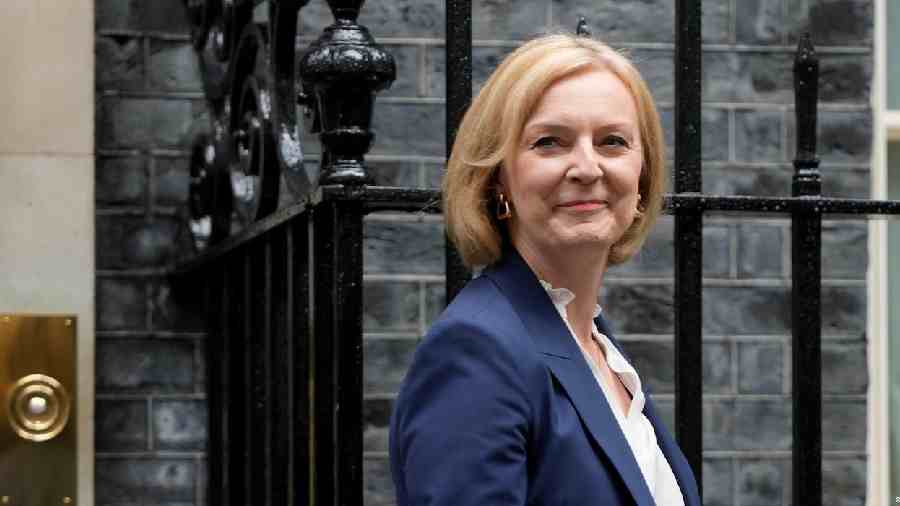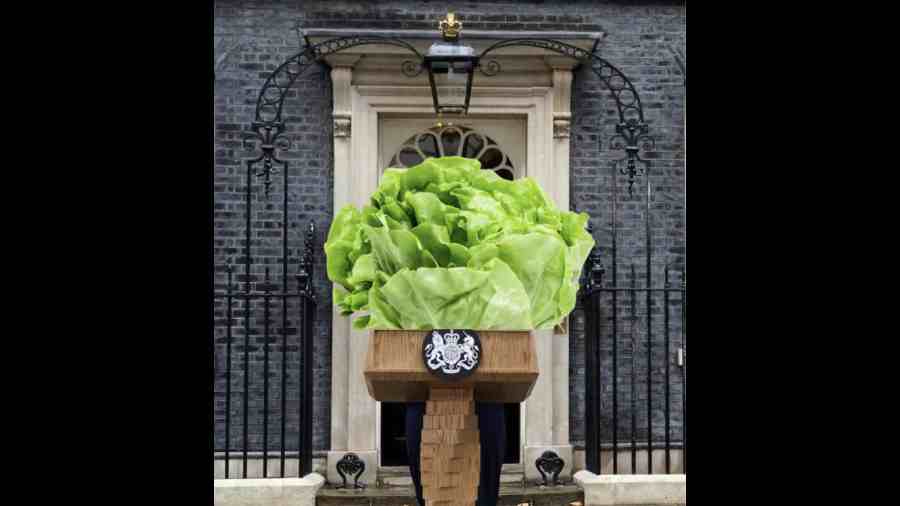British Prime Minister Liz Truss on Thursday announced her decision to resign, falling prey to a free-market fiscal agenda that promised a radical policy shift but instead plunged the country into weeks of economic and political turmoil.
The economic programme that roiled financial markets, pushed up living costs for voters and enraged much of her own party has made her the shortest-serving Prime Minister in British history.
Truss had promised tax cuts funded by borrowing, deregulation and a sharp shift to the Right on cultural and social issues.
On Wednesday, Truss lost the second of the government’s four most senior ministers in an India-related brawl, faced laughter as she tried to defend her record to Parliament and saw her lawmakers openly quarrel over policy.

Truss also became the butt of ridicule with a newspaper starting a live contest between the Prime Minister and a lettuce on their shelf-life. On Thursday, the lettuce won, outlasting Truss.
The Conservative Party will elect a new leader by October 28, and former finance minister Rishi Sunak is expected to be in the fray.
What is bad for the goose need not be so for the gander. Not every country holds its elected leader accountable for economic chaos.
In India in 2016, Prime Minister Narendra Modi played havoc with the economy by springing the demonetisation. Most of the demonetised money was returned to the banks, demolishing the black money excuse.
Six years and a general election later, several fundamental questions are yet to be answered.
The questions include whether the demonetisation notification violated provisions of the Constitution and the RBI Act. The Supreme Court is still looking into at least nine such questions.
(Additional reporting by New York Times News Service)











